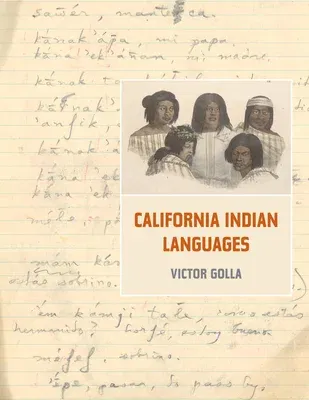Victor Golla
(Author)California Indian LanguagesPaperback, 1 February 2022

Qty
1
Turbo
Ships in 2 - 3 days
Only 1 left
Free Delivery
Cash on Delivery
15 Days
Free Returns
Secure Checkout

Print Length
400 pages
Language
English
Publisher
University of California Press
Date Published
1 Feb 2022
ISBN-10
0520389670
ISBN-13
9780520389670
Description
Product Details
Author:
Book Format:
Paperback
Country of Origin:
US
Date Published:
1 February 2022
Dimensions:
27.69 x
21.34 x
2.79 cm
ISBN-10:
0520389670
ISBN-13:
9780520389670
Language:
English
Pages:
400
Publisher:
Weight:
1088.62 gm